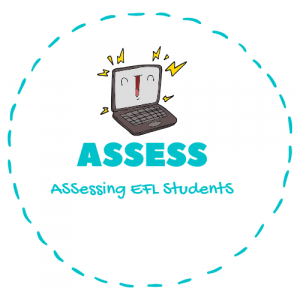Fighting for a quality education with ASSESS
The beginning of 2021 has been a bit disconcerting, the continuous incidents happening all over the world as well as the coming of the third wave of COVID-19 is making our lives different and difficult. All these changes show us that the world must be prepared for a different future, and this starts with our education. Quality education is one of the global goals for sustainable development in Unite 2030, since it is the basis for the prosperity of everyone. The project ASSESS works for getting an innovation in the way of assessing students.
The Online Exam Creator, which is our main product, is being developed by Inercia Digital along with the collaboration of Learnmera Oy. While this product is being created, the rest of partners are working creating rubrics for the assessment of all the exams that will be available in the OEC for teachers. This tool will let teachers have the opportunity to have exams, worksheets, scales, images and games for using in their lessons.
The partners will also create a guide for teachers explaining how to use this tool, moreover, a number of 30 teachers will be trained to use this tool. If you are an English teacher from Spain, Finland, Portugal, Turkey, Greece or Germany we invite you to participate in this innovative project.
ASSESS – BLOG / JANUARY 2021
With 2021 finally here, we wanted to take a moment and share a few thoughts concerning the assessment of the productive skills (speaking and writing). This is a quite complex task.
There are so many traits and competences that can be assessed: fluency, accuracy, complexity of language, vocabulary richness and/or range, acquisition of specific vocabulary, language chunks or grammar structures, content/ideas and details provided, sequencing or organization of ideas… and, how to measure all these traits/competences? How wide should each trait be for L1 or L2 learners at different stages of proficiency? Should we prioritize competences in the assessment of learner proficiency or should they all be weighted in the same way? What type of tasks should be used to assess learners’ speaking and writing proficiency? How often should productive skills be assessed?
The answers to all these questions are essential to the development of any effective approach to the assessment of proficiency in the productive skills. However, with so many approaches that exist, teachers often feel confused and frustrated when it comes to evaluate English Foreign Language Learners and create effective and valid rating scales.
Taking into account teachers’ difficulties and needs, the project ASSESS aims to define innovative methods and tools for the assessment of EFL learners. On the basis of approaches that already exist, the Common European Framework of Reference (CEFR), a range of information sources and data that was collected and analysed through questionnaires addressed to teachers, the project ASSESS will provide a handbook to suggest a usable scale construction model for application or adaptation in assessing speaking and writing exams, easily and in a reliable way. The objective is to contribute to the improvement of teachers’ skills in preparing reliable rating scales, allowing them to give a trait specific feedback according to different levels of achievement. Providing constructive feedback on speaking and writing (strengths and needs) is essential for helping students improve their skills.
In addition, in the web portal, speaking and writing exams will be complemented with an example of assessment scale ready to use or adapt.
We founded ASSESS project to help teachers find innovative tools for assessing English Foreign Language Learners. Our mission is being realized. We are eager to bring inspiration and innovation to foster good practices and facilitate the evaluation process.
FORMATIVE ASSESSMENT IN DISTANCE EDUCATION
The COVID-19 has resulted in schools shut across the world.Globally, over 1.2 billion children are out of the class.As a result, education has changed dramatically, with the distinctive rise of e-learning, whereby teaching is undertaken remotely and on digital platforms.Even before COVID-19, there was already high growth and adoption in education technology.Whether it is language apps, virtual tutoring or online learning software, there has been a significant surge in the usage of distance learning environments and e-evaluation techniques in education. It is believed that the integration of information technology in education will be further accelerated and online education will eventually become an integral component of school education. Even after coronavirus, traditional offline learning and e-learning will go hand by hand. There are, however, challenges to overcome.
Important studies and projects are being carried out in order to make distance education effective and efficient.However, there are deficiencies related to e-EVALUATION, which is one of the sub-components of Distance Education. Teachers all around the world are having difficulty in keeping up with this new process.The unplanned and rapid move to online learning – with no training and little preparation – has resulted in a poor user experience in assessment.Teachers are sometimes having to use unfamiliar technologies while at the same time figuring out how to effectively instruct students who may not be very engaged in an online environment. Similarly, students and their families may be frustrated by the technology and the demands created by Distance Education.To cope with these challenges, formative assessment , an ongoing process used by teachers during learning and teaching to provide feedback of student learning to improve student understanding of intended learning outcomes and support them to become self-directed learners,is a recommended solution.
Therefore,the aim of ASSESS project is to identify a sustainable online education and assessment platform in which English Language Teachers can find ready and quality content on the basis of curriculum and evaluate their students constantly with Formative Assessment strategies by interacting on the platform.
To get more information watch our video!


